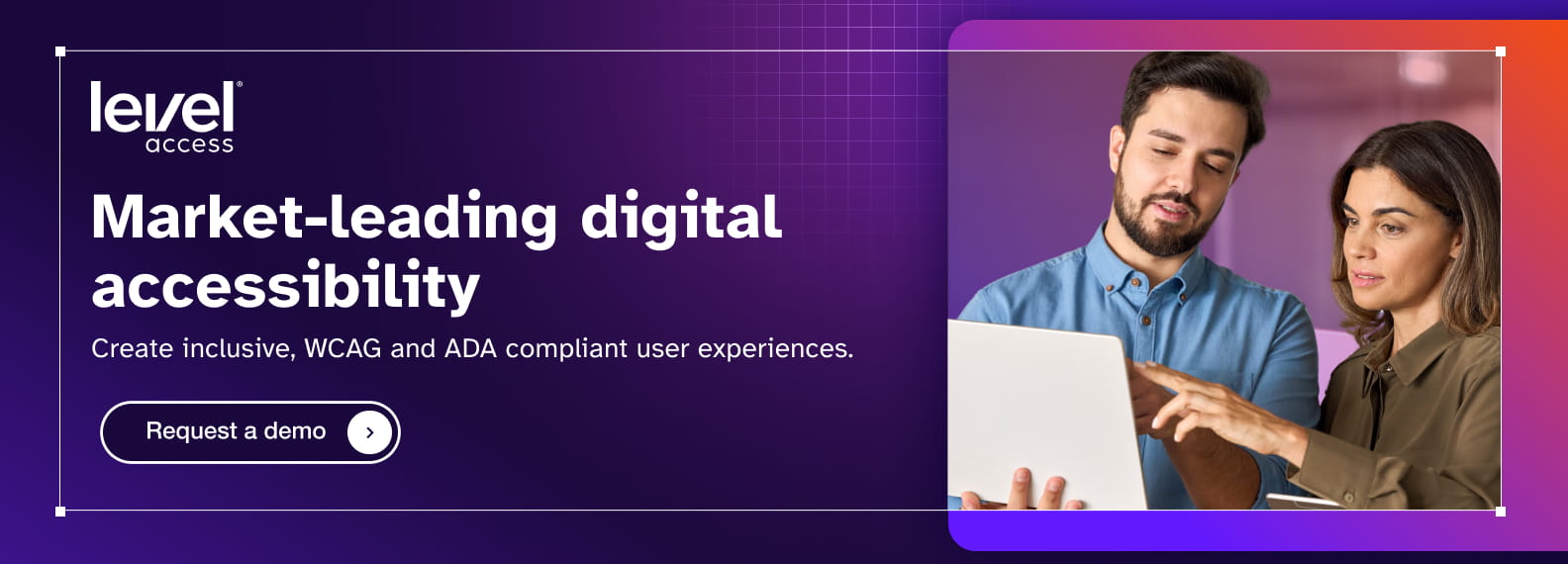For travelers today, most hotel stays start online. Long before checking in, consumers rely on the web to plan and book their accommodations—and that includes 1.3 billion people globally living with disabilities. In fact, a 2024 survey by the Open Doors Organization found that 81% of travelers with disabilities used the web for travel support in the past two years, with 48% finding and booking accessible hotels. That means accessible hotel websites are crucial to providing an equitable, enjoyable travel experience.
Your website is the first experience travelers have with your brand, and the most vital component of your public presence. It conveys what kind of host you are. Is the website inviting to all guests? Is there an integrated network of relevant, accessible information? Does that information enable visitors to easily search for what they need, find suitable accommodations, and make online reservations? Does it inform travelers with disabilities about the physical accessibility (e.g., accessibility features) of their experience should they choose your hotel?
In this blog, we cover key considerations for providing an accessible online experience for all hotel guests, including related laws and standards, and outline proven ways to meet the needs of travelers with disabilities. We’ll also explore how accessibility is a major selling point for hospitality brands.
A barrier-free hotel starts with an accessible website
When travelers browse hotel websites to plan upcoming trips, they may be seeking information on a hotel’s location (Is it convenient? Are there nearby attractions?) and amenities. But those with disabilities may also be seeking accessibility information. Do the rooms have wheel-in showers or grab bars for guests with mobility disabilities? Are there auxiliary visual alarms (flashing-light emergency alert systems) for guests who are deaf or hard-of-hearing?
If those details are incomplete, travelers may assume the room they considered booking is inaccessible—and they won’t hesitate to make other accommodations that they can be confident meet their needs.
Alternatively, if your website provides detailed, easy-to-find descriptions of guestroom accessibility features, your hotel can make a positive first impression that increases the possibility of an online booking.
The importance of an accessible online reservations system
Many travelers book their stays directly on a hotel’s website. For consumers, online booking offers efficiency and convenience—and for hotels, it’s a way to quickly capture new business. But if your
online booking system isn’t accessible, you’re likely turning away would-be guests.
For example, booking platforms that aren’t compatible with screen readers may prevent users of these technologies from securing a reservation. And if the 24/7 online reservations you’ve advertised don’t allow users to specifically reserve accessible rooms, potential customers may turn to competitors who make good on their promises for all guests, not just some.
But an inaccessible booking system doesn’t just translate to lost business—it also introduces legal risks. The Americans with Disabilities Act (ADA) explicitly mentions that a hotel’s reservation system must be usable for people with disabilities. Guests with disabilities must be able to book rooms the same way as other travelers, around the clock and with no restrictions. We’ll take a deeper dive into the laws and standards governing hotel accessibility in the following section.
What are the ADA requirements for hotels?
Notably, hotels in the U.S. are obligated to comply with a series of regulations under the ADA. These include identifying and describing, in detail, the accessible features of both hotel guest rooms and public areas.
An ADA-compliant hotel website, no matter what information or functions it contains, must also be barrier-free for people with disabilities. The best way to ensure your website meets the law’s requirements is to conform with the Web Content Accessibility Guidelines (WCAG), the global gold standard for web accessibility. WCAG standards outline specific criteria for creating inclusive online content, such as providing alternative text (alt text) for images and validating that online forms can be filled out using different input devices (not just a mouse).
The Department of Justice has consistently ruled that, under Title III of the ADA, websites of public accommodations—including hotels—must be accessible. And the high-profile litigation that often results when websites aren’t ADA compliant can cost organizations millions in settlements—and much more in negative publicity.
How is accessibility a selling point?
For the hospitality industry, providing accessible service can be lucrative. The Open Doors Organization reports that 50% of adults with disabilities stayed in hospitality accommodation in the past two years. This amounts to 20 million people (about the population of New York) taking over 40 million hotel-based trips, spending $125 per night when they stay in a hotel. And according to Bloomberg, North Americans with disabilities collectively spend about $19 billion on travel annually.
But despite this market opportunity, there are still many unsatisfied travelers with disabilities dealing with unnecessary barriers. Recent research from MMGY Global found that 96% of travelers with mobility-related disabilities faced accessibility issues at hotels or other accommodations.
Hospitality brands that actively try eliminating barriers for travelers with disabilities are at a clear competitive advantage in a highly profitable market.
Serve every guest with best-in-class accessibility solutions
A digitally accessible website improves the user experience for all hotel guests, and it’s critical to complying with laws governing accessibility in the hospitality industry. And as more customers with and without disabilities go online to schedule their next stay, there’s no better time to ensure you make a positive impression on every visitor to your website.
Level Access empowers organizations across industries, including hospitality, to deliver accessible digital experiences. Contact us today, and let our technology and expert services put you on the right path.
The post Accessible Hotel Websites: Empowering Every Guest appeared first on Level Access.
